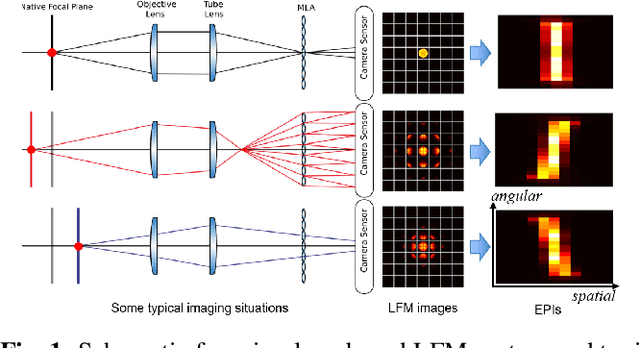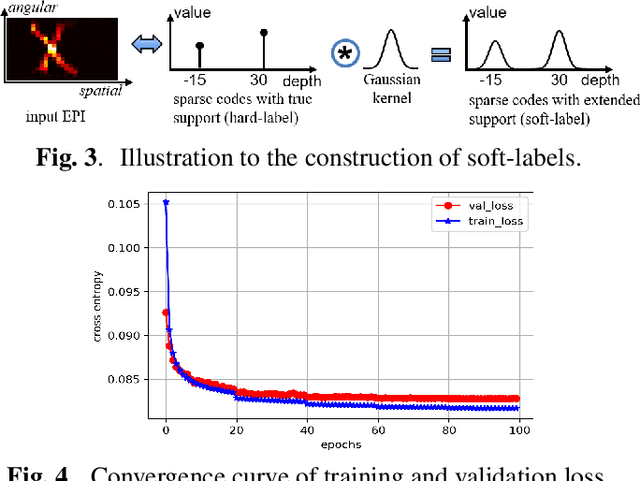Model-inspired Deep Learning for Light-Field Microscopy with Application to Neuron Localization
Paper and Code
Mar 10, 2021



Light-field microscopes are able to capture spatial and angular information of incident light rays. This allows reconstructing 3D locations of neurons from a single snap-shot.In this work, we propose a model-inspired deep learning approach to perform fast and robust 3D localization of sources using light-field microscopy images. This is achieved by developing a deep network that efficiently solves a convolutional sparse coding (CSC) problem to map Epipolar Plane Images (EPI) to corresponding sparse codes. The network architecture is designed systematically by unrolling the convolutional Iterative Shrinkage and Thresholding Algorithm (ISTA) while the network parameters are learned from a training dataset. Such principled design enables the deep network to leverage both domain knowledge implied in the model, as well as new parameters learned from the data, thereby combining advantages of model-based and learning-based methods. Practical experiments on localization of mammalian neurons from light-fields show that the proposed approach simultaneously provides enhanced performance, interpretability and efficiency.
 Add to Chrome
Add to Chrome Add to Firefox
Add to Firefox Add to Edge
Add to Edge